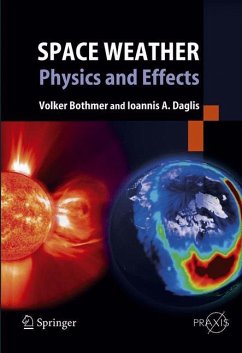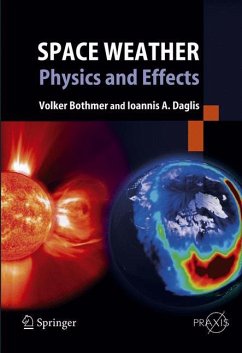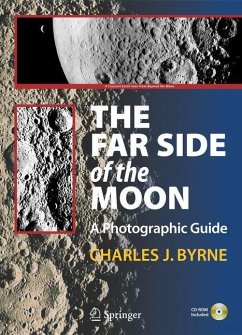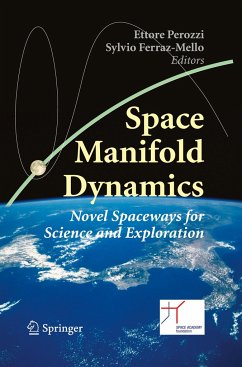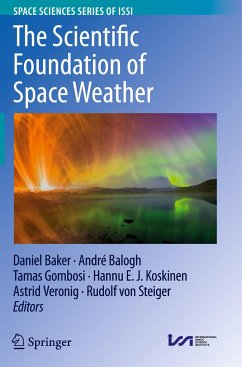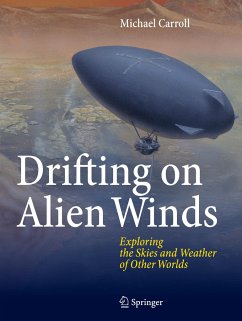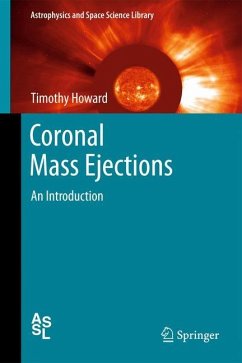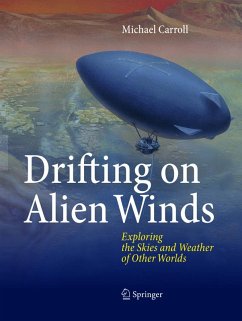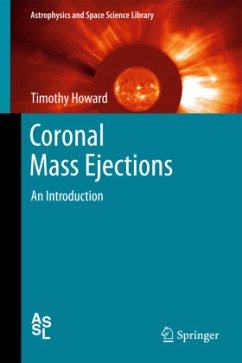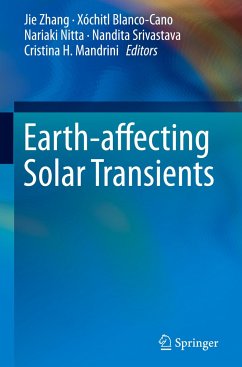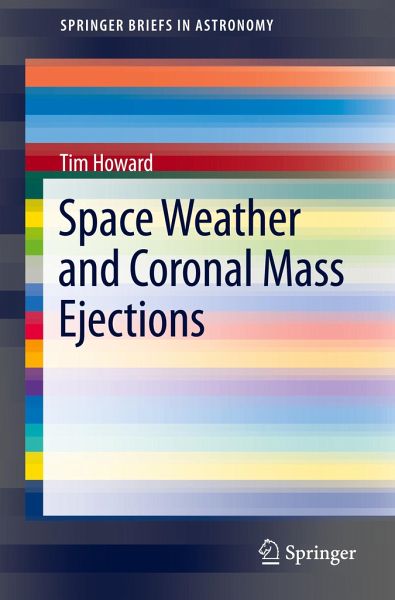
Space Weather and Coronal Mass Ejections

PAYBACK Punkte
19 °P sammeln!
Space weather has attracted a lot of attention in recent times. Severe space weather can disrupt spacecraft, and on Earth can be the cause of power outages and power station failure. It also presents a radiation hazard for airline passengers and astronauts. These "magnetic storms" are most commonly caused by coronal mass ejections, or CMES, which are large eruptions of plasma and magnetic field from the Sun that can reach speeds of several thousand km/s.In this SpringerBrief, Space Weather and Coronal Mass Ejections, author Timothy Howard briefly introduces the coronal mass ejection, its scien...
Space weather has attracted a lot of attention in recent times. Severe space weather can disrupt spacecraft, and on Earth can be the cause of power outages and power station failure. It also presents a radiation hazard for airline passengers and astronauts. These "magnetic storms" are most commonly caused by coronal mass ejections, or CMES, which are large eruptions of plasma and magnetic field from the Sun that can reach speeds of several thousand km/s.
In this SpringerBrief, Space Weather and Coronal Mass Ejections, author Timothy Howard briefly introduces the coronal mass ejection, its scientific importance, and its relevance to space weather at Earth and other planets. This title focuses on the latest advances in CME observation and modeling, including new results from the NASA STEREO and SDO missions. It also includes topical issues regarding space weather and the most recent observations and anecdotal examples of the impacts of space weather and CMEs.
In this SpringerBrief, Space Weather and Coronal Mass Ejections, author Timothy Howard briefly introduces the coronal mass ejection, its scientific importance, and its relevance to space weather at Earth and other planets. This title focuses on the latest advances in CME observation and modeling, including new results from the NASA STEREO and SDO missions. It also includes topical issues regarding space weather and the most recent observations and anecdotal examples of the impacts of space weather and CMEs.




